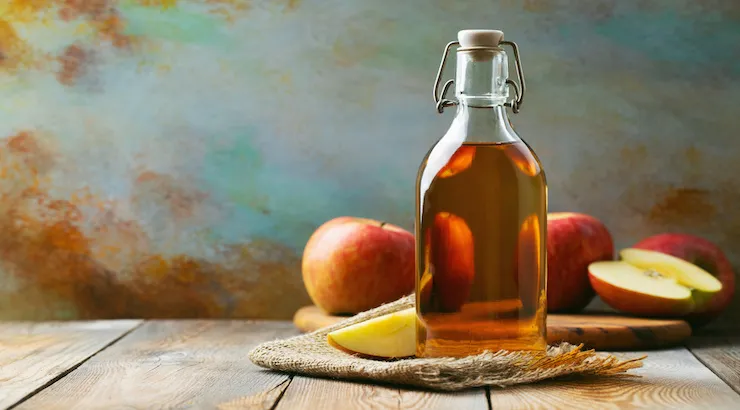Commonly known as jock itch or crotch itch, especially among men and athletes, Tinea cruris is a fungal condition that causes itching and burning in the groin area. Anyone can get this annoying skin condition that is generally caused by the fungus Trichophyton rubrum.
Both men and women can get jock itch or ringworm of the groin. This same fungus that is responsible for jock itch causes foot infections, ringworm nail infections, and fungal infections of the scalp, hair, and beard.
This fungus can be spread by both clothing and contact. Tinea cruris most often affects folds of skin in the groin and can spread to the anus and thighs.
Are you at risk?
Like most type fungus, Trichophyton rubrum thrives in moist and warm areas. This is why athletes or people who sweat a lot often struggle with this fungal infection. People who are obese can also have an issue as they have skin folds where fungus can grow. Other risk factors include being a man, wearing tight underwear, having a weakened immune system or diabetes.
Do you have fungus down under?
Here are some symptoms of jock itch that you need to be familiar with. A quick diagnosis and treatment are necessary to keep the condition from spreading.
- Itching and burning of the groin, inner thigh, or anal areas.
- Patches of red skin that might be scaly or raised. You can usually see a sharply defined edge.
- Blisters that might ooze.
- Patches of skin that are darker or lighter than normal.
- Peeling, cracking or flaking skin.
Natural remedies that work
Natural and non-toxic remedies often include plants that have antifungal properties. These remedies are cost-effective, accessible and do not have the same side effects as over-the-counter or prescription treatments. People who have sensitive skin or allergies often have a difficult time tolerating conventional fungal medicine.

Diet: Believe it or not, diet has a big part to play in the prevention of jock itch. Eating a high sugar and carbohydrate diet can encourage the growth of fungi including those that cause jock itch. Cutting back on your consumption of wine and beer as well as other alcohol products can help your body buckle down and fight fungal infections.

Vinegar: Apple cider vinegar and white vinegar have antiseptic and antifungal properties, making them excellent options for treating jock itch. Here are a few ways that you can use vinegar.
- Mix equal parts apple cider vinegar and water in a spray bottle. Put the bottle in the refrigerator for a few hours and spray on the affected area. This combination cools the skin and kills the fungus.
- Mix four parts water and one part white vinegar and soak a clean washcloth in the mixture. Wash all skin down under with the cloth, be sure to get in any folds. Repeat two to three times a day until symptoms are gone.
- Mix equal parts coconut oil and white vinegar together. Apply to the affected area and allow it to sit for a few hours before rinsing. Do this twice daily until the infection goes away.
Cornstarch: Cornstarch is often found in skin powders and used for diaper rash since it acts as a moisture absorber. When applied to areas affected by jock itch, it can calm itching, burning and keep you from scratching. Put a little on the sore area two times a day and regularly use to prevent future fungal problems.
Garlic and Manuka honey: Garlic and honey are both natural bacteria killers and a powerful duo against jock itch. Research shows that Manuka honey is not only an effective skin moisturizer but also a germ killer that accelerates healing and reduces infections when used on wounds. A study published in the Journal of the American Academy of Dermatology found garlic solutions more effective than traditional treatments for athletes foot.
To treat jock itch, mince two cloves of garlic and combine with two tablespoons of Manuka honey. Add warm water to create a paste. Apply this twice a day for 15 minutes. In addition, eat more garlic or take garlic capsules to ease discomfort caused by the fungal infection.
Onion: Onions are rich in natural sulfides that give them potent antibacterial, antifungal, and anti-inflammatory properties. To use as a remedy for Tinea cruris, puree one medium onion into a paste and apply to the affected area. Let it sit for about 30 minutes before rinsing off. Allow the skin to dry naturally and repeat twice a day until the infection goes away.
Chamomile tea: You may be familiar with drinking chamomile tea as a sleep aid, but it also has gentle and soothing properties that can ease inflammation and irritation on your skin. To calm your sore and irritated groin area and promote healing, steep a tea bag, enjoy a cup of tea and put the cooled bag on your skin. This is called healing from the inside and the outside!
Calendula: Calendula oil is extracted from calendula flowers, also known as marigolds. It has natural healing powers thanks to its antifungal, anti-inflammatory and antibacterial properties. Calendula oil is gentle for sensitive skin and can be used several times a day until the infection is gone.
Aloe vera: Aloe vera has been revered for its medicinal properties for thousands of years. This thick-skinned succulent is widely used in the cosmetic, pharmaceutical and food industries. The gel-like substance found inside the leaves contains the healing power of antioxidants that can inhibit the growth of bacteria. The gel penetrates well below the outer layer of skin providing rapid and deep healing. Glycoprotein in aloe vera helps reduce the inflammation, decrease pain, ease itchiness and knock out bacteria.
Lavender essential oil: Lavender has a calming effect on the skin and also contains antibacterial and antiseptic properties that make it an effective natural remedy for genital fungal infections. Lavender oil can halt the progression of a fungal infection while calming sore and irritated skin. Mix several drops of lavender oil with sweet almond oil and apply to the affected area several times a day using a clean cotton pad.
Tea tree essential oil: Tea tree essential oil can reducing inflammation and itching while naturally killing troublesome fungus. Commonly used to treat nail fungal infections, this powerful essential oil contains a number of bacteria-fighting compounds including terpinen-4-ol that destroys bacteria, viruses, and fungi.
Preventing fungal infections
Here are a few tips to keep nasty fungs from invading your private parts:
- Keep your groin area clean and dry.
- Use a different towel for your groin area and the rest of your body to reduce the risk of spreading.
- Wear loose-fitting clothes and avoid any fabric that might irritate your skin.
- Shower after sweating.
- Keep athletic supporters clean and dry.
- Change your underwear daily.
- Try not to scratch as this can lead to a secondary infection.
- If you are obese, work towards a healthier lifestyle including good food choices and exercise.
-The Alternative Daily

